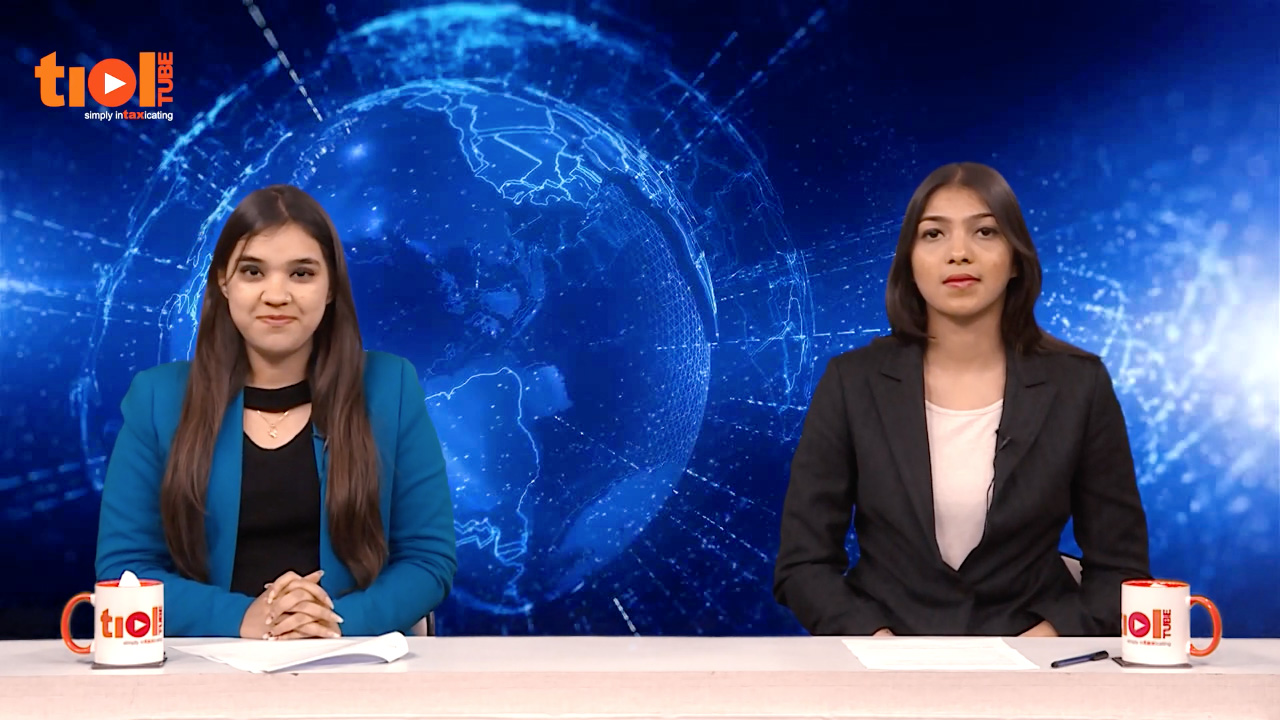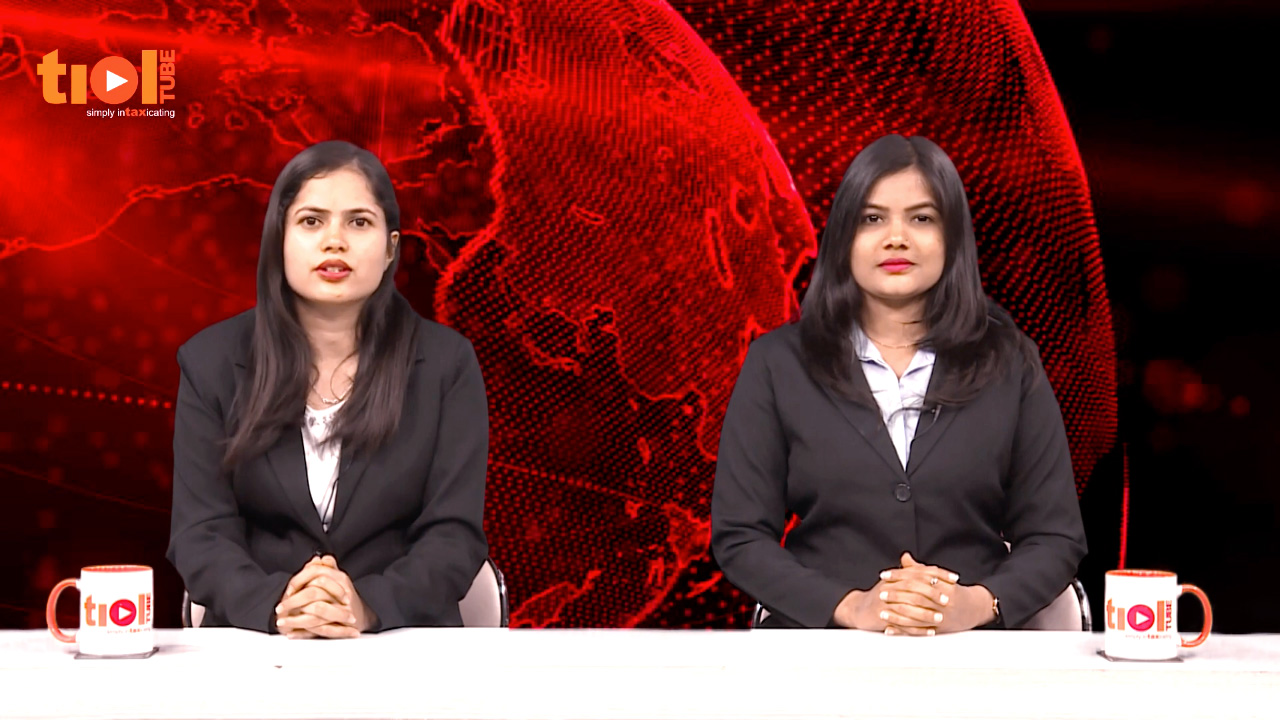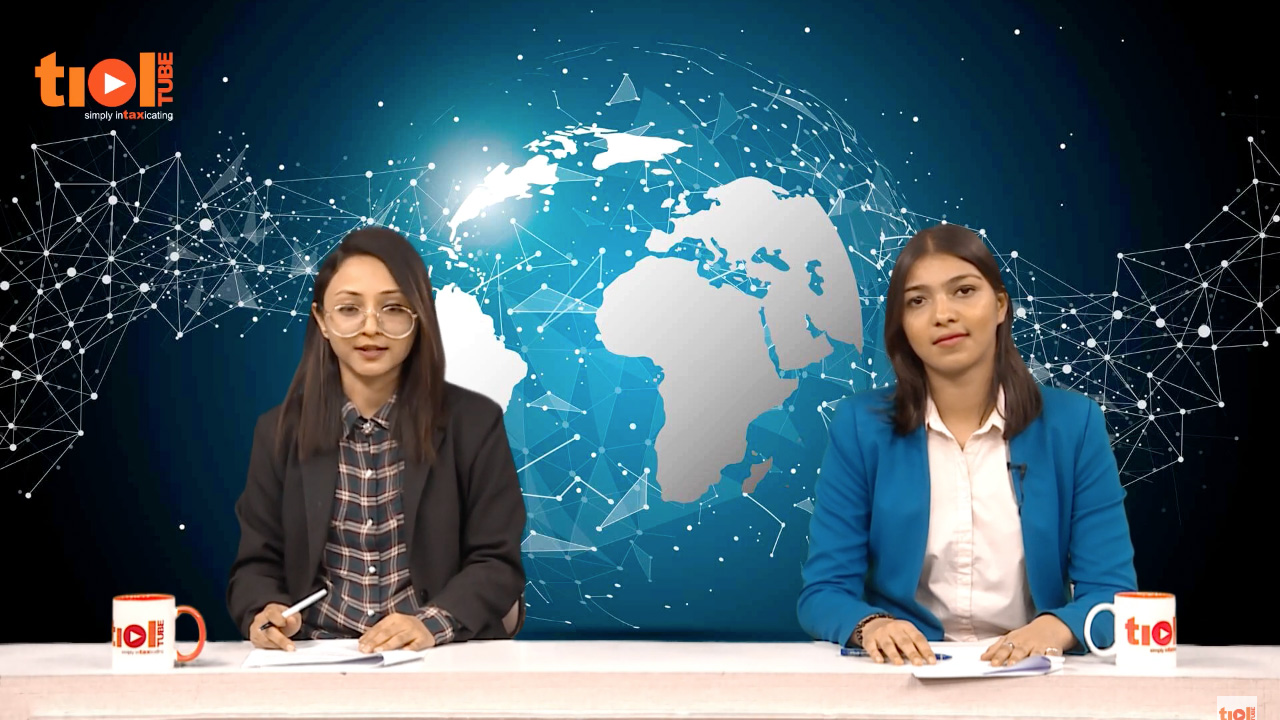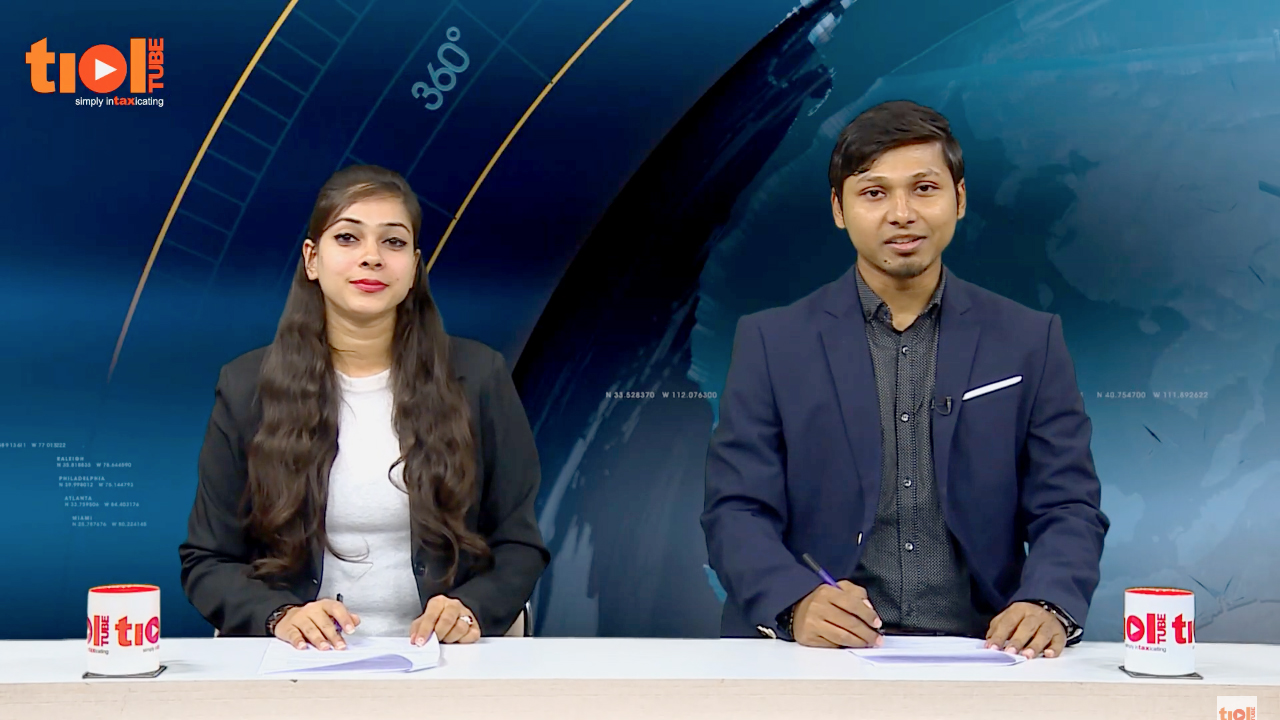| SERVICE TAX
2020-TIOL-27-CESTAT-HYD
Iljin Electric Company Ltd Vs CC & CE
ST - The assessee-company is engaged in providing Works Contract Service - Upon audit of accounts for the relevant period, the Department noted two discrepancies, namely non-payment of service tax on mobilisation advance received from the client and irregular availment of Cenvat credit on common input services used for rendering taxable as well as exempted services - SCN was issued proposing to recover duty demand on the amount of mobilisation advance received and also seeking reversal u/r 6(3) of CCR 2004 to be recovered u/r 14 of CCR 2004 - Demand for interest was also raised and penalties were also imposed u/s 76, 77 & 78 of the Finance Act 1994 - On adjudication, the demands were confirmed - Hence the present appeal.
Held - it is a fit case for remand for verification of the amount of service tax paid by the assessee on the mobilisation advances received by it and the amount of cenvat credit reversed and its calculation - It follows that the adjudicating authority will allow the assessee an opportunity of being heard and to present documents in support of its case: CESTAT
- Case remanded: HYDERABAD CESTAT
2020-TIOL-26-CESTAT-MUM
PR CST Vs Reliance General Insurance Company Ltd
ST - The issue relates to availment of CENVAT credit of tax paid in value of services procured and used by assessee, a provider of 'general insurance service' and 'insurance auxiliary service', and including admittedly exempted service, for rendering taxable and exempted services, is the alleged failure to restrict the utilisation of such credit, even though separate record of consumption of input service, required under rule 6(2), were not maintained, to the rate prescribed in rule 6(3) of CCR, 2004 - In consequence, the credit, in excess of eligible balance in November 2006, February 2007 and March 2007, utilised for discharge of tax liability was sought to be recovered - There can be no doubt that the credit availed on impugned input services cannot be denied as the tax liability has been included in the value made over to the provider of service - Again, there can be no doubt that rule 6(1) of CCR, 2004 precludes the availment of credit attributable to input services used for providing exempted services except in circumstances of maintenance of separate accounts for receipt, consumption and inventory and taking credit only to the extent that is attributable to providing of taxable service; as an exception to these two, necessarily to be read in unison, the discharge of tax liability by restricting the debit of CENVAT credit to the percentage is acceptable in law - Such restriction is not, in any way, connected to the entitlement, or availability, of credit but is intended to ensure that, at any point in time, the discharge of tax liability by payment to the exchequer shall not be less than 80% of the dues - No reason found to disagree with the decision of adjudicating authority in impugned order: CESTAT
- Appeal dismissed: MUMBAI CESTAT
CENTRAL EXCISE
2020-TIOL-22-HC-P&H-CX
Adhunik Crop Care Pvt Ltd Vs UoI
CX - The assessee-company manufactures insecticides - During the relevant period, the officers of the DGCEI searched the premises of the assessee and seized stock of goods lying in different go-downs and in a factory of the assessee - The assessee made repeated requests for release of the seized goods, whereupon the Revenue authority concerned directed provisional release of the goods subject to payment of duty and furnishing of bond @ 70% of the MRP of the goods and bank guarantee @ 25% of bond value - The present writ assailed such conditions imposed.
Held - The Revenue is not solely at fault or singularly responsible for the loss of goods as alleged by the assessee, whereas the assessee too is partially responsible for the same - Similar to the decision in Grosons Marketing (P) Ltd. Vs Joint Director, D.G.C.E.I., Ludhiana the Revenue cannot be held liable to pay the full value of the goods as the assessee too to such extent is responsible for loss of goods - The assessee should have sold the goods by availing the option of release and soon as provisional release order was passed - Hence the assessee and the Revenue must equally bear loss of value of goods - The Revenue issued SCN for confiscation of the goods which still may be pending for adjudication - The determination of question of confiscation and liabilities in terms of fine/penalty is inevitable prior to payment of value of goods - Hence the assessee is entitled to 50% of ther value of goods which are lying in its factory premises - The Revenue shall refund in cash 50% of the value of goods within one month from the date of receipt of copy of this order, failing which the assessee would be entitled to interest @ 9% on the amount due: HC
- Writ petition partly allowed: PUNJAB & HARYANA HIGH COURT
2020-TIOL-25-CESTAT-MUM Sun Pharmaceuticals Industries Ltd Vs CCE
CX - The assessee-company claimed refund of accumulated Cenvat credit in terms of Rule 5 of CCR 2004 in respect of goods cleared by them to 100% EoU during the relevant period - Such refund claim was rejected by the jurisdictional Assistant Commissioner - The assessee then approached the Commr.(A), who proceeded to uphold the order of the Assistant Commissioner, on grounds that no evidence existed to show that the cenvat credit claimed to have been accumulated was in fact admissible to the assessee or that the inputs on which credit was availed, were indeed used to manufacture goods supplied to 100% EoU - Hence the present appeal.
Held - Considering the mandate of Rule 19 of CER 2002 and Notfn No 42/2001-CE (NT), it is well established that the CER and the authorities provide for clearance of goods without payment of duty for being used in manufacture of goods finally meant for export, subject to certain restrictions and fulfilment of procedure - By referring to the definition of export as per the Customs Act for restricting the scope of Rule 5 of CCR 2004 to the cases of physical exports outside India would be contrary to the provisions of the CER and the notifications issued under such Rules - It is settled principle of interpretation of statute that it should be interpreted strictly as per the expressed provisions employed in the statute, without referring to any external aid - It is only in case of ambiguity that the reference could have been made to external aids or the definitions in the similar statute - Thus from plain reading of Rule 5 of CCR 2004 along with Rule 19 of CER 2002 and Notfn No 42/2001-CE (NT) it is held that refund of accumulated credit in terms of Rule 5 is admissible in case of goods supplied for manufacture of goods exported - In the present case, the refund is claimed in respect of goods cleared to 100% EoU without payment of duty by following the procedure prescribed - It is not the Revenue's case that the goods were exempted goods - There is no provision in the Central Excise Act or Rules other than Rule 19, which permits clearance of dutiable goods without payment of duty - Thus the order denying refund of accumulated credit is devoid of merit: CESTAT
- Assessee's appeal allowed: MUMBAI CESTAT
CUSTOMS
2020-TIOL-21-HC-AHM-CUS CC Vs Azad Jain
Cus - The applicant seeks recall of an order passed by this court, wherein the applicant's appeal had been disposed off in light of the Sabka Vishwas Legacy Dispute Resolution Scheme and the Instruction issued in this regard - The applicant claimed that such scheme applies only to legacy issues pertaining to Central Excise and Service Tax and the provisions of the same are inapplicable to Customs matters - The applicant claimed that its counsel had previously been unable to put forth this fact before the court.
Held - The circular dated 22nd August, 2019 on the basis of which the appeal had been disposed of is not applicable in the facts of the present case - Hence the earlier order is recalled - The Tax Appeal No.1461 of 2009 is hereby restored to file: HC
- Application allowed: GUJARAT HIGH COURT |








